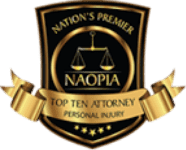ACLU vs. NSA: Protecting Rights to Privacy
Everyone’s talking about Edward Snowden’s recent revelations of the extent to which the NSA has been tracking U.S. citizens. If you haven’t heard (where have you been?), Edward Snowden is a former National Security Administration contractor who, after leaving the NSA with classified surveillance information, has been leaking said information to show Americans how the NSA has violated their rights to privacy.
And I’ve been asked several times some variation of “You’re a lawyer, can anything be done to protect our privacy, from a legal standpoint?” My stock answer is that this is a political issue, not a legal one. But then I saw the ACLU’s lawsuit and now I’m rethinking my stance.
There have been many legal problems with prior lawsuits against government monitoring, but one of the difficulties is that you need to show actual harm, not just a theoretical possibility of harm, in order to bring a lawsuit. This means you have to show that whoever you are suing has DEFINITELY negatively affected your life, not just that they COULD.
You cannot sue the government because “they may be monitoring me.” But of course, you never know if they’re monitoring you, so you may never have the standing to sue.
But that’s changed now, because all Verizon, AT&T, and other phone companies’ customers are being monitored, and that’s now been admitted. But still, what’s the harm? Pure invasion of privacy cases are theoretically possible, but tough to win. It’s easier to vindicate the right to privacy if there’s a more easy-to-define harm.
So the ACLU has filed a lawsuit against several government leaders, in their official capacities, alleging the harm of the telephone surveillance being conducted.
The ACLU’s argument is really clever: Their lawsuit claims that many people contact the ACLU because they are interested in suing the government. People call about immigrants’ rights, racial discrimination, access to reproductive services, discrimination based on sexual orientation, and other highly sensitive issues. The very fact that they have made this phone call to the ACLU, let alone the contents of the conversation, is confidential and protected by the attorney-client privilege.
Now that people know that phone call is being tracked by the very entity they are afraid of and calling the ACLU for protection against (namely, the US government), fewer people will call. The phone tracking will have a chilling effect. As they wrote in paragraph 26 of the complaint, the ACLU’s “work often depends on their ability to keep even the fact of their discussions with certain individuals confidential.”
So the ACLU’s work is being directly harmed by the surveillance. A smart argument, showing a clear harm. I’m very interested to see how this turns out.
If you’re of the opinion that the government doing widespread spying on U.S. citizens is worth it because it will help stop terrorist attacks, you’re in good company. If, on the other hand, you think it’s gone too far, and you want to do something about it, I recommend something like this. Probably best to avoid this kind of thing.
 Fewer Cases Better Results
Fewer Cases Better Results 




